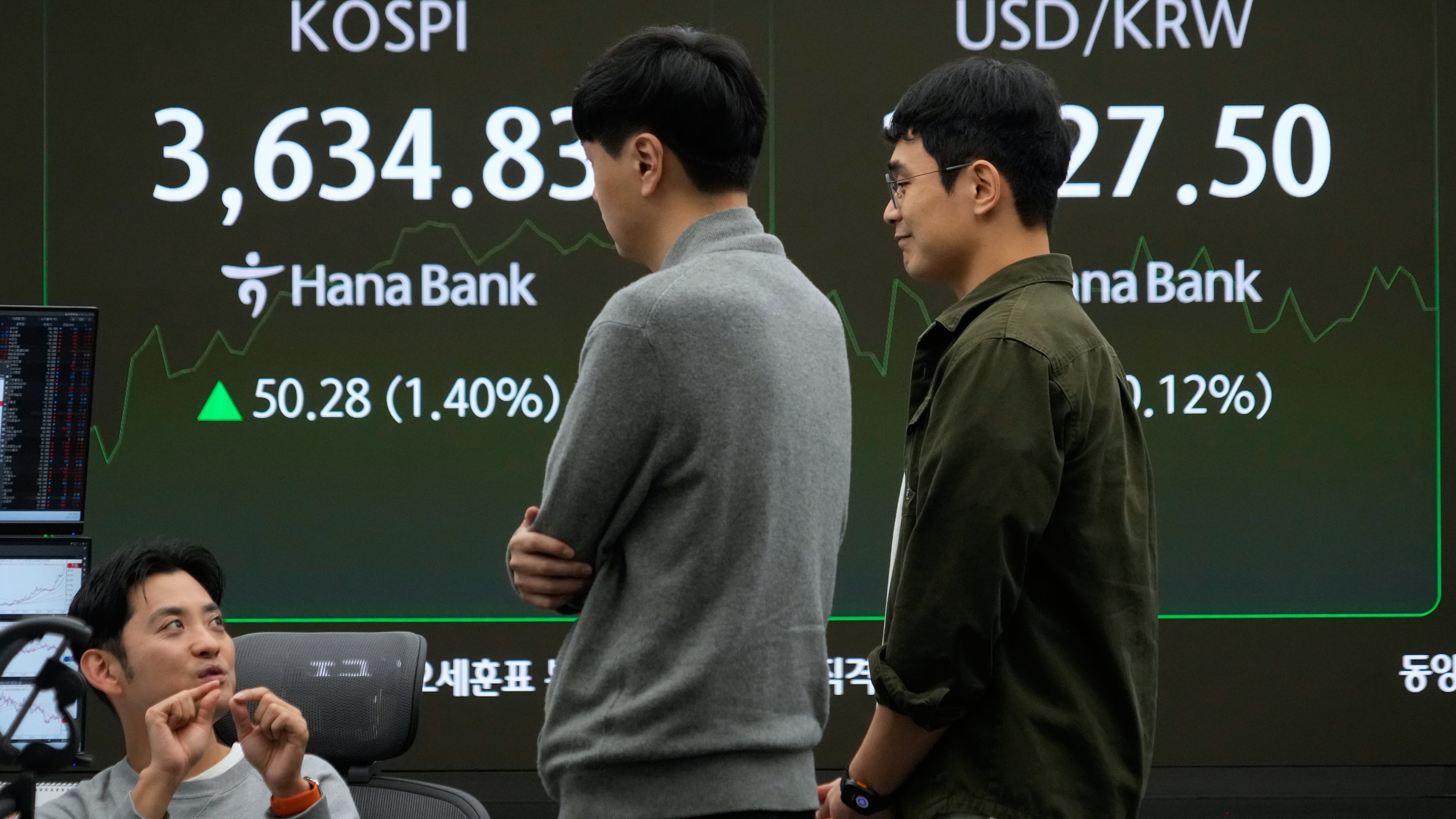Asian shares are mixed and US futures little changed after Wall St rally

TOKYO (AP) — Asian shares were trading mixed on Tuesday after a rally on Wall Street spurred by U.S. President Donald Trump’s reassurances over relations with China.
Japan’s benchmark Nikkei 225 slipped 1.4% to 47,419.87, as trading resumed following a national holiday Monday.
In Hong Kong, the Hang Seng lost 0.4% to 25,788.44, while the Shanghai Composite edged up 0.2% to 3,897.56.
“Don’t worry about China,” Trump said on his social media platform Sunday. He also said that China’s leader, Xi Jinping, “doesn’t want Depression for his country, and neither do I. The U.S.A. wants to help China, not hurt it!!!”
On Friday, the S&P 500 tumbled to its worst drop since April after he accused China of “ a moral disgrace in dealing with other Nations.” He also threatened much higher tariffs on Chinese goods.
Still, the status of trade talks between the two biggest economies remains unclear. Despite harsh rhetoric and fresh retaliatory moves on tariffs and export controls, Trump said he still may meet with Chinese leader Xi Jinping later this month on the sidelines of a regional summit.
Australia's S&P/ASX 200 edged 0.1% lower to 8,876.20. South Korea's Kospi gained 0.6% to 3,605.10.
The S&P 500 jumped 1.6% in its best day since May, closing at 6,654.72. It recovered just over half its drop from Friday. The Dow Jones Industrial Average climbed 1.3% to 46,067.68, and the Nasdaq composite leaped 2.2% to 22,694.61.
The down-and-up moves for the market echoed its manic swings during April, when Trump shocked investors with his “Liberation Day” announcement of worldwide tariffs. He eventually relented on many to give time to negotiate trade deals.
“After the sharp lurch in U.S. equities on Friday — the worst since the “Liberation Day” tariff shock — markets have delivered a relief rebound — arguably regaining confidence even,” Mizuho Bank said in a commentary.
Trump's wavering on tariffs has helped stocks soar since April. So have expectations for several cuts to interest rates by the Federal Reserve to help the economy.
Critics say the market now looks too expensive now after prices rose much faster than corporate profits. Worries are particularly high about companies in the artificial-intelligence industry, where pessimists hear echoes of the 2000 dot-com bubble that imploded.
Broadcom jumped 9.9% for one of Monday’s biggest gains in the S&P 500 after announcing a collaboration with OpenAI. Broadcom will help develop and deploy custom AI accelerators that the maker of ChatGPT will design.
For stocks to look less expensive, either prices need to fall, or companies’ profits need to rise.
That’s raising the stakes for the upcoming earnings reporting season, with big U.S. companies lined up to say how much profit they made during the summer. JPMorgan Chase, Johnson & Johnson and United Airlines are some of the big names on the calendar this coming week.
Fastenal tumbled 7.5% for the largest loss in the S&P 500 after the maker of fasteners and safety supplies reported a profit for the latest quarter that was slightly weaker than analysts expected.
In other dealings early Tuesday, benchmark U.S. crude added 20 cents to $59.69 a barrel. Brent crude, the international standard, gained 21 cents to $63.53 a barrel.
In currency trading, the U.S. dollar fell to 152.13 Japanese yen from 152.29 yen. The euro cost $1.1581, up from $1.1569.
___
AP Business Writers Matt Ott and Stan Choe contributed.

